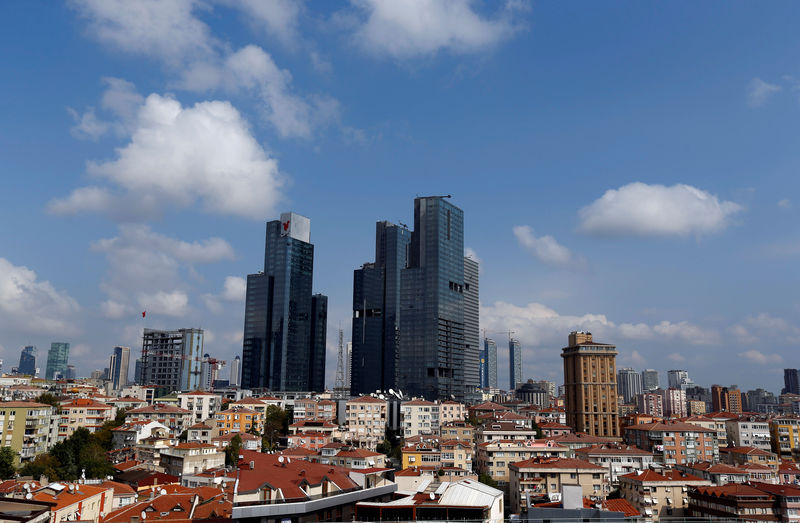By Ezgi Erkoyun and Orhan Coskun
ISTANBUL/ANKARA (Reuters) - Turkish manufacturing activity slid to its lowest level in nine years in September, a business survey showed on Monday, in what economists said was among the clearest signs yet that Turkey was headed for a deep recession after months of currency turmoil.
Further underscoring the pain for consumers and businesses, authorities hiked electricity and natural gas prices for the third month running, sources said, as the lira's sell-off drives up the cost of everything from food to fuel.
The currency has lost some 37 percent of its value against the dollar so far this year, hit by concerns about President Tayyip Erdogan's control over monetary policy and a diplomatic rift with the United States. The crisis has reverberated across global markets and deepened concerns about the outlook for Turkey's banks and manufacturers.
A closely watched measure of manufacturing health, the Purchasing Managers' Index (PMI), fell to its lowest since March 2009, the survey from Istanbul Chamber of Industry and IHS Markit showed. The decline was driven by a slowdown in output and new orders, the survey showed, which in turn caused scaling back in employment and purchasing activity.
"The sharp drop in Turkey's PMI last month chimes with other very weak survey data and adds to the evidence that the economy has entered a deep recession," Liam Carson of Capital Economics said in a note to clients.
Inflation hit 18 percent last month, its highest in nearly 15 years, and is expected to surge to 20 percent this year. Turkey is dependent on imports, which are usually denominated in foreign currency, for almost all of its energy needs.
Turkey's energy regulator raised electricity prices for residences by 9 percent and by 18.6 percent for industry from October 1, sources said, after the state-owned gas operator made a similar increase.
PAIN FOR SHOPPERS
Highlighting the pain for shoppers, retail prices in Istanbul surged by more than four percent in September from a month earlier, data showed. Retail prices in Turkey's biggest city were nearly 19 percent more expensive last month than they were in September 2017.
The government has responded to the crisis by cutting its growth forecasts for this year and next and promising to tighten spending. The central bank's mammoth 6.25 percentage point rate increase, and Erdogan's attempts to repair ties with the United States have gone some way to ease investor concerns, although worries remain, particularly about banks.
In one bright patch for the economy, data showed that exports rose 22.6 percent year-on-year in September, to $14.5 billion, the Trade Ministry said. The trade deficit shrank 76.85 percent, the ministry said.

The most exported products were cars, it said, with Germany, Britain and Italy the leading export destinations. Turkey imported the most from Russia, China and Germany, it said.